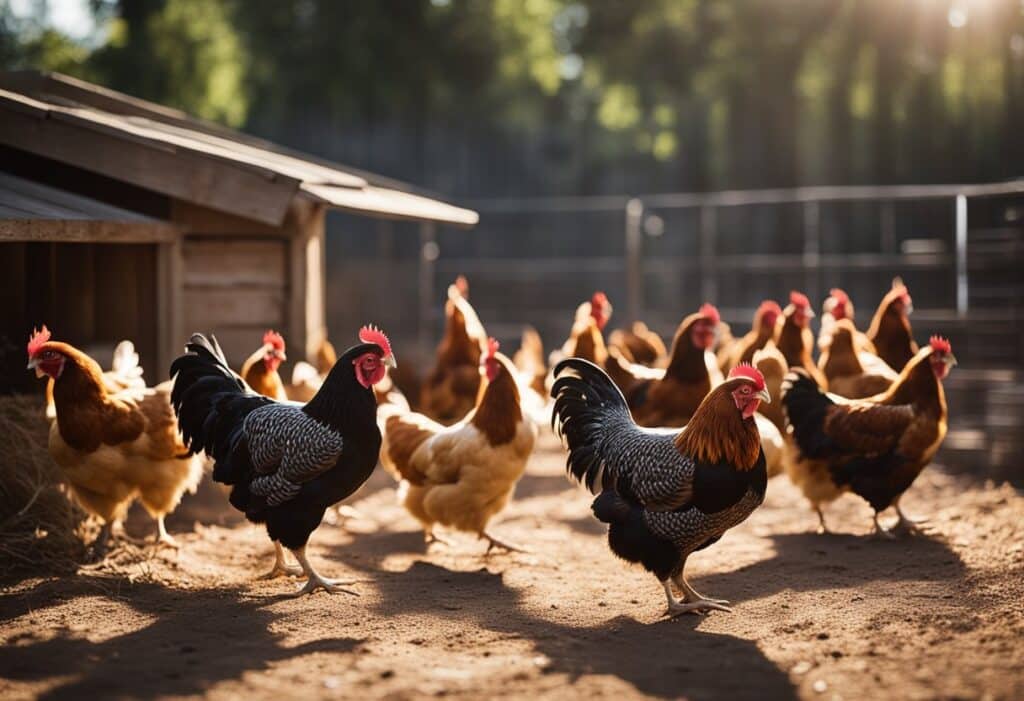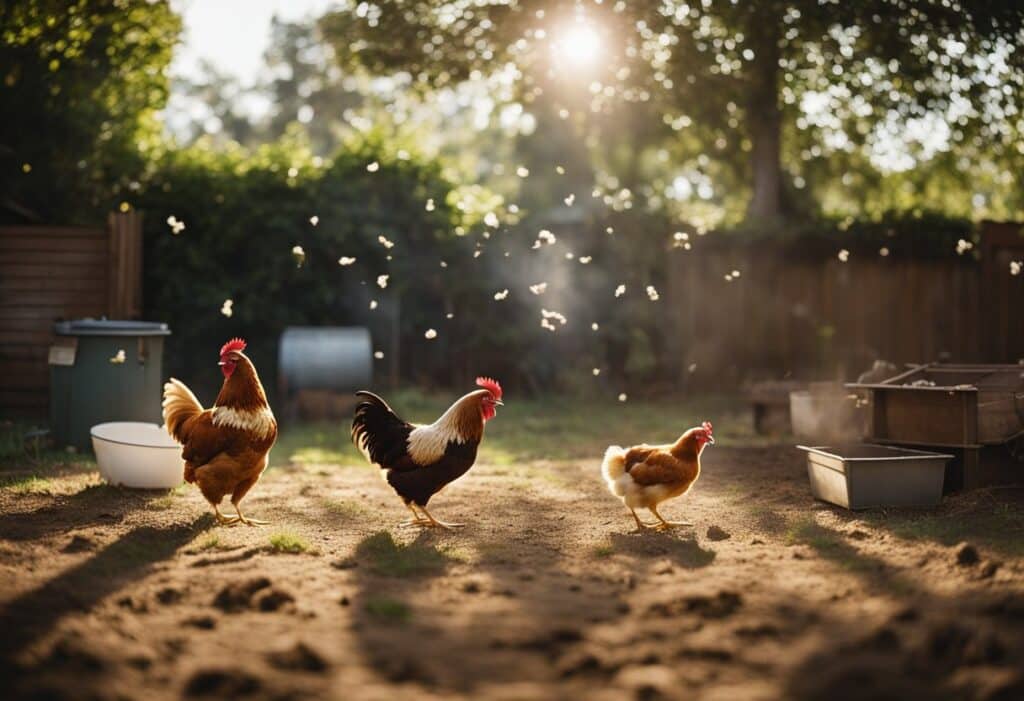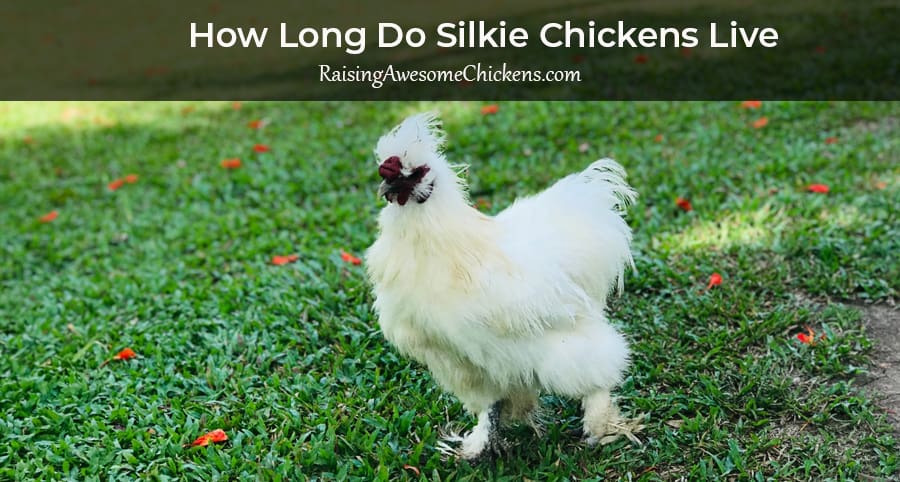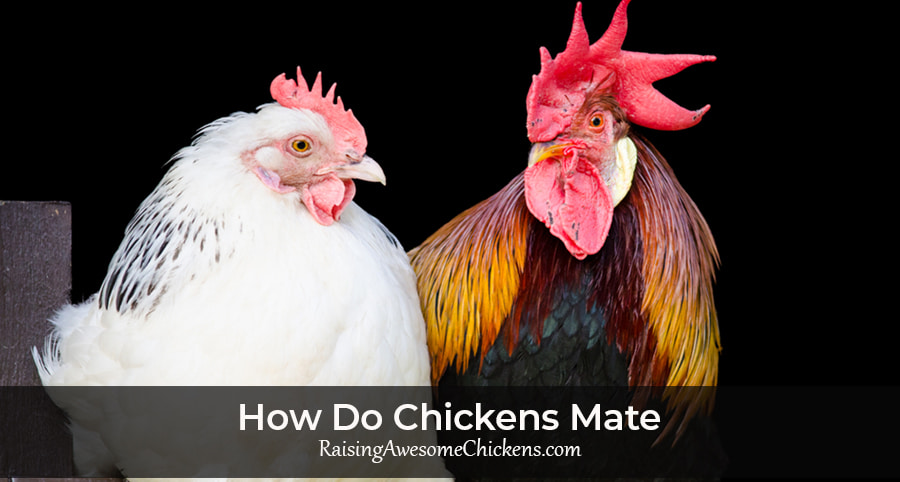Raising chickens in the backyard has become increasingly popular as individuals seek to know more about where their food originates and enjoy the pleasures of keeping poultry as pets. However, can you get sick from raising chickens? Coming into close contact with chickens, like any other animal, comes with potential health risks. It’s important for potential and current chicken keepers to be aware of the diseases that can be transmitted from chickens to humans, particularly if they are kept in a residential setting.

Several infectious diseases can pass from chickens to humans, and these are known as zoonotic diseases. Salmonella, Campylobacter, and Avian Influenza are among the most commonly reported conditions that can pose health threats. Individuals with a weakened immune system, such as the elderly or very young, may be especially vulnerable to such infections.
In addition to understanding the risks of disease transmission, proper hygiene practices play a critical role in reducing the likelihood of falling ill. Regular hand washing after handling chickens, their eggs, or any area of the coop, as well as maintaining a clean environment for the birds, can greatly decrease the chances of disease transmission. It’s clear that while there are risks associated with raising backyard chickens, being well-informed and practicing diligent hygiene can mitigate many of these concerns.
Table of Contents
Identifying Risks of Disease From Chickens
Raising chickens can pose health risks to humans through the transmission of diseases and bacteria. By understanding the common illnesses that chickens can carry and how they affect humans, individuals can take appropriate precautions to reduce the likelihood of infection.
Common Diseases and Bacteria
Chickens can harbor various bacteria such as Salmonella, Campylobacter, Listeria, and E. coli, which are potential causes of foodborne disease. Direct contact with chickens or their droppings, or indirectly by consuming contaminated eggs or chicken meat, can transmit these pathogens to humans.
- Salmonella: Often leads to fever, diarrhea, nausea, vomiting, and abdominal pain.
- Campylobacter: Can cause similar symptoms and is also associated with chicken.
- E. coli: Symptoms may include severe stomach cramps, diarrhea, and vomiting.
- Listeria: Rare but dangerous, especially for pregnant women, newborns, and those with weakened immune systems.
Backyard Chickens and Salmonella
Salmonella infection is closely associated with handling live chickens or consuming their eggs. Chickens can carry Salmonella bacteria without showing any signs of illness, which can contaminates their feathers, feet, beaks, and the environment they live in.
- Subclinical infection: Chickens might not show symptoms but still spread bacteria.
- Contaminated eggs: Even clean, uncracked eggs can harbor Salmonella inside.
Backyard Chickens and Avian Flu
Avian influenza, or bird flu, is a viral infection that can spread from chickens to humans. It is less common than bacterial infections but poses a significant health risk due to its potential severity and contagious nature.
- Mode of transmission: Mainly through contact with sick birds or contaminated surfaces.
- Human symptoms: May range from conjunctivitis to severe respiratory illness, depending on the virus strain.
Backyard Chickens and Lice
Chickens can become infested with lice, which are external parasites. While these lice typically do not transfer to humans, close contact with infested chickens or their housing can lead to skin irritation or allergic reactions.
- Chicken lice: Mainly affect the birds’ feathers and skin, causing them distress.
- Human contact: Generally, chicken lice do not transfer to humans but may cause discomfort through contact.
Symptoms of Infections in Humans
Individuals who contract infections from chickens can experience a range of symptoms. Early recognition of these symptoms is crucial for receiving timely medical treatment.
- Salmonella and Campylobacter: Symptoms usually begin six hours to six days post-infection and include diarrhea, fever, and stomach cramps.
- Avian flu: High fever, cough, and potentially life-threatening complications like pneumonia.
- Allergic reactions: Itchy skin or rash after contact with chicken parasites.
By being aware of these risks, individuals can take steps to prevent diseases associated with raising chickens, such as strict hygiene practices and proper cooking of poultry products.
Modes of Transmission

The transmission of illnesses from chickens to humans can occur through various direct and indirect pathways. Understanding how these diseases are spread is essential for maintaining good health in both chickens and those who raise them.
From Chickens to Humans
Humans can contract diseases from chickens primarily through direct contact with the animals or their excrement. Handling chickens directly, especially without proper hygiene practices, can lead to the spread of zoonotic diseases—illnesses that can be transmitted from animals to humans. Bacteria such as Salmonella and Campylobacter, often found in chicken feces, can be transferred to humans if they come in contact with contaminated feathers, coops, or droppings, and then touch their mouth or food.
- Direct Contact:
- Handling chickens
- Touching feces, droppings, or feathers
- Zoonotic Diseases:
- Salmonella
- Campylobacter
Environmental Factors
The environment plays a pivotal role in the transmission of diseases from chickens to humans. The coop and surrounding area can become contaminated with feces and droppings, which may harbor harmful bacteria. Illnesses can spread when the contaminated materials dry and become airborne or when they come into contact with contaminated food or surfaces. Regular coop cleaning and maintenance are essential to control the spread of germs. Additionally, misuse of antibiotics in chickens can contribute to antibiotic-resistant bacteria in the environment.
- Environmental Contamination:
- Airborne particles from dried feces
- Contaminated surfaces
- Antibiotic Resistance:
- Misuse in poultry industry
Prevention and Safety Measures
Implementing effective prevention and safety measures is crucial for chicken keepers to reduce the risk of disease transmission from backyard chickens to humans. These protective practices help maintain a sanitary environment and encourage good health for both the poultry and their caretakers.
Sanitation and Hygiene
Maintaining sanitation is essential to prevent disease. Chicken keepers should diligently wash their hands with soap and water before and after entering the coop. The following table outlines recommended sanitation practices:
| Activity | Sanitation Measures |
|---|---|
| Handwashing | Use soap and water; scrub for at least 20 seconds |
| Handling Chickens | Wear disposable gloves; don’t touch face or mouth |
| Cleaning Equipment | Disinfect feeders, waterers, and tools regularly |
| Visiting the Coop | Have a set of boots exclusively for coop visits |
| Disposing of Waste | Remove droppings and soiled bedding with proper protection |
Thorough handwashing and the use of gloves can mitigate the spread of pathogens.
Responsible Chicken Keeping
Responsible chicken keeping is defined by proactive precautions to prevent disease. Chicken keepers must ensure their coops are kept sanitary by:
- Regularly removing waste and replacing bedding.
- Isolating sick birds immediately to prevent the spread of illness.
- Limiting the flock’s exposure to wild birds or rodents, which can be carriers of disease.
- Avoiding overcrowding, promoting better sanitary conditions and health.
Following these tips not only supports the welfare of the backyard chickens but also safeguards the health of the chicken keepers and their communities.




